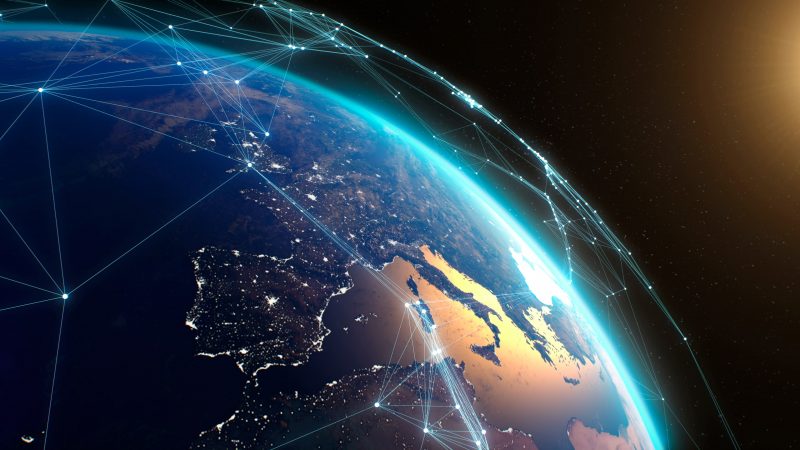SES: IRIS² “still many unknowns”
May 5, 2023

SES CEO Steve Collar, speaking to analysts following on from the satellite operator’s Q1 results on May 4th, said the European Union’s third global satellite constellation, IRIS², was a “strategic project” for SES.
Nevertheless, he admitted that while enthusiastic there were still many known unknowns and it was too early to be more specific. “We’re still working hard on the architecture,” Collar stated. “It will be multi-orbit. We think we have a strong role to play given our investments. But it’s way too early think about any incremental investment that we or any other member of the consortium might make.”
IRIS² will be a public/private partnership and require the winning consortium members to invest in the project. But Collar added that the project’s architecture had yet to be settled. SES is a member of the consortium which includes Eutelsat, Hispasat, Airbus and other leading European space businesses.
Also evading any specific updates were the reports on a possible merger between SES and Intelsat. Collar retreated to his previous comments on consolidation within the satellite industry. He stressed that any deal would need to meet SES’s criteria for all business transactions, including shareholder benefits. However, while nothing new emerged, it was clear that discussions with Intelsat, or its major shareholders, with a merger in mind were still active.
There was good news from CFO Sandeep Jalan on the upcoming FCC compensation payments for freeing up 300 MHz of C-band spectrum for reuse by 5G operators in the US. Jalan said the post-tax amount he expected SES to receive would be $2.45 billion. But to this figure would be added some $600 million of reimbursable costs related to the C-band conversion process.
This combined $3.05 billion would mean that by January 2024 the SES leverage (net debt to EBITDA) would be a record low of 1-times for the business. Jalan explained that this ultra-low level of debt was well below the SES ‘norm’ of 3-times. He said that no decision had yet been made on how to exploit this benefit.
“It’s a good problem to have,” Jalan added. “Investment grade remains very important for us. Our cost of capital remains very competitive. Our average cost of debt is around 3 per cent. As the world has moved to a high-cost environment, having an investment-grade balance sheet in a capital-intensive industry is a strategic benefit that we’d like to retain.”
Other posts by Chris Forrester:
- Collar departure: “Hard to see a positive read”
- Dish, DirecTV keen to merge?
- Boeing accused of technology theft
- Analyst: Satellite DTD market worth billions
- Bank: Rocket Lab value boosted by Virgin Orbit assets
- Analyst: “TV Industry consolidation inevitable”
- Intelsat: ‘Insider trading’ appeal lodged
- ESA boss praises SpaceX
- How Virgin Orbit lost a billion dollars
